Hidradenitis suppurativa
Tailored and effective care, delivered on your terms.
Hidradenitis suppurativa is a long-term condition that causes recurrent sores and lumps to appear on your skin. For most, it’s a frustrating and painful condition to live with.
That’s why our clinicians are on hand to provide you with the expert treatments and ongoing care that you need. Order hidradenitis suppurativa treatment online with us to see options tailored to you.
Hidradenitis suppurativa (HS) is a long-term dermatological condition that causes painful lumps to appear on your skin, usually due to blocked hair follicles. There’s no cure for hidradenitis suppurativa, but the condition can be improved and managed with medications and lifestyle changes. It tends to develop in areas where you have a lot of sweat glands, and where skin frequently rubs together, such as your armpits, groin or under your breasts.
It’s not fully known what causes hidradenitis suppurativa, but smoking, obesity and a family history of it are all thought to make it more likely. It’s also more common in people in their twenties and thirties. Diagnosis and treatment of hidradenitis suppurativa is normally carried out and supervised by a dermatologist.
Anyone can get hidradenitis suppurativa, but there are some risk factors that can make it more likely, including:
These risk factors suggest that a combination of genetic, environmental and behavioural factors can have an influence on its development.
The most common group of people to get HS are women in-between puberty and menopause, and flare ups also seem to run in tandem to menstrual cycles, which points to hormone levels being a factor. People with obesity are also at greater risk, due to the increased likelihood of skin rubbing against itself, increased sweat production and retention, and hormone changes.
Smoking is also thought to increase the risk of hair follicles being blocked, and family history being a factor suggests that genes can play a role.
Hidradenitis suppurativa is a fairly common condition, with estimates ranging from 1%-4% of the general population getting it at some point in their lives. It’s thought that more people might have it than is reported because it’s difficult to diagnose, but also because people often wait for several years before seeking advice after their symptoms start.

How we source info.
When we present you with stats, data, opinion or a consensus, we’ll tell you where this came from. And we’ll only present data as clinically reliable if it’s come from a reputable source, such as a state or government-funded health body, a peer-reviewed medical journal, or a recognised analytics or data body. Read more in our editorial policy.
The exact cause of hidradenitis suppurativa is unknown, but the symptoms usually develop from blocked hair follicles. It’s not linked to an infection or poor hygiene, and you can’t catch it from someone else.
The symptoms of HS can range from mild to severe, and these are usually separated into ‘Hurley stages’. Hurley stage I is the mildest form of the condition, where you only have isolated bumps with no sinus tracts, and Hurley stage III is the most severe form of the condition, where you have multiple bumps with a lot of sinus tracts and scars, covering a large area.
Hidradenitis suppurativa usually begins with blackheads, spots filled with pus, and firm, pea-sized lumps that appear in the same place. New lumps will then often form nearby. If these are not controlled with treatment, larger lumps can also appear and spread. As the condition progresses, tunnels under the skin called sinus tracts can develop which can break out on the surface and leak pus.
HS can be a very painful condition, and it tends to develop in either the armpits, groin area, buttocks or below the breasts. These symptoms go through cycles of severity known as flare ups.
When HS isn’t well-managed with treatment, it can lead to further problems. The affected areas can become infected, but pus is often present with the condition, so this doesn’t always mean that there’s an infection. Hidradenitis suppurativa can also cause scars, especially when the condition becomes more severe. It can also cause swelling, restricted movement, arthritis and, in rare cases, a form of skin cancer called squamous cell carcinoma. The longer the condition is left untreated, the more likely these secondary problems are to occur.
And because it’s a lifelong, recurring condition that can have a big impact on your life, it can also lead to adverse psychological effects and feelings of isolation. Anxiety and depression are particularly common among people with HS, as they struggle to manage their symptoms or may be conscious of them.

How we source info.
When we present you with stats, data, opinion or a consensus, we’ll tell you where this came from. And we’ll only present data as clinically reliable if it’s come from a reputable source, such as a state or government-funded health body, a peer-reviewed medical journal, or a recognised analytics or data body. Read more in our editorial policy.
HS is a long-term condition, so you might have to try a number of different treatments depending on how severe your symptoms are.
Often antibiotics are used (even when there’s no infection). If the lumps are particularly inflamed and painful and you have a bacterial infection, then a one-to-two week course of standard antibiotics can be recommended. But if no infection is present then a course of low-dose antibiotics can be recommended for at least three months, to reduce inflammation and the number of lumps that develop. Antiseptic washes are also commonly prescribed alongside other treatments to keep the area clean while you change the dressing.
Retinoids are another option. These are vitamin A based treatments that can only be prescribed by a dermatologist. These treatments aren’t safe to take if you are (or might become) pregnant, so you’ll need to be monitored on them to make sure they continue to be safe for you.
Other treatment options include:
Treatment is very much based on individual cases. Early stages of the condition tend to be best treated with medications, whereas surgery might be a better option for more severe or persistent cases.
It’s also important to note that with long-term conditions it may take a while to find the treatment plan that works best for you, and you might need to try a few different ones along the way. You might also need to adjust what treatment you use if your condition changes. That being said, many people are able to keep their symptoms well-controlled and minimise flare ups if they find the right treatment early enough.
To effectively control and maintain the symptoms of more advanced HS, treatment is usually necessary (at least during flare-ups). However, milder cases of the condition can be managed with lifestyle adjustments and self-care measures. These same measures are also recommended to minimise flare-ups and improve symptoms for people with a more advanced form of the condition, too.
Non-medicinal measures that have been shown to help with HS symptoms include:

How we source info.
When we present you with stats, data, opinion or a consensus, we’ll tell you where this came from. And we’ll only present data as clinically reliable if it’s come from a reputable source, such as a state or government-funded health body, a peer-reviewed medical journal, or a recognised analytics or data body. Read more in our editorial policy.
Have something specific you want to know? Search our info below, or ask our experts a question if you can’t find what you’re looking for.
Hidradenitis Suppurativa. Nih.gov.
Diagnostic delay in hidradenitis suppurativa is a global problem. The British Journal of Dermatology, 173(6), pp.1546–1549.
Complications of hidradenitis suppurativa. Seminars in Cutaneous Medicine and Surgery, 36(2), pp.79–85.
Hidradenitis suppurativa (HS) - Overview.
Is there a diet for hidradenitis suppurativa?
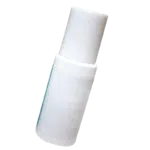
Antibiotic topical lotion used for various skin conditions. Contains 10mg/ml clindamycin.
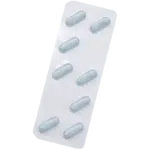
An antibiotic that kills bacteria and stops them from growing. Suitable for skin conditions.
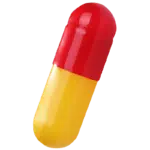
Branded version of Lymecycline. Helps treat bacterial infections and reduce inflammation.

Registered with GMC (No. 4624794)
Meet Daniel
Registered with GPhC (No. 2202465)
Meet Sanjeda
Registered with GPhC (No. 2070724)
Meet Craig
Always read the leaflet that comes with your medication and tell us about any side effects you get.
We know health, but you know you.
Our experts tell you what’s safe, but you decide what’s best.
Answer a few questions and tell us about yourself. Get tailored advice from our clinicians so you can choose better.
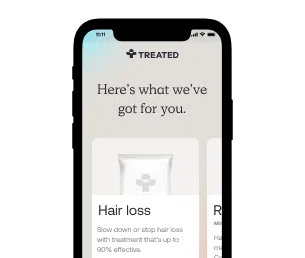
Choose your treatment and how often you have it delivered.
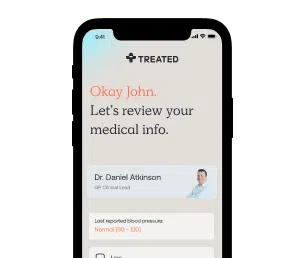
We know things change. It’s the nature of life. We’ll check in regularly to make sure your treatment is still right for you.
Pause. Change. Skip. Start again. Any time you like.
Here are some other things we can help with.
Let’s make BPH treatment simpler. Get ongoing care from our clinicians, but without the hassle of appointments.
Tablets, creams, injections. Get expert advice and choose the ED treatment that’s best for your life.
Cream, tablets, spray. PE treatment is available. Our experts can support you to find the best solution for you.
We're making healthcare more about you. Sign up to our newsletter for personalised health articles that make a difference.
Disclaimer: The information provided on this page is not a substitute for professional medical advice, diagnosis, or treatment. If you have any questions or concerns about your health, please talk to a doctor.
We couldn't find what you're looking for.
Here's everything we treat. Or, if you're looking for something we don't have yet, you can suggest something.
If there’s a particular treatment or condition you’re looking for, tell us and we’ll look into it for you.
Submit your question here, or tell us if you’ve found an issue on our site.
We’ll get back to you very soon. We aim to respond to all queries in one working day.
You’re signed up to our newsletter. Keep an eye on your inbox for our latest update.
By clicking 'Subscribe now' you're agreeing to our Privacy Policy.
We’ve sent you an email asking you to confirm your email address.